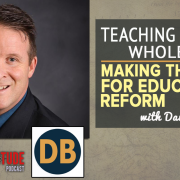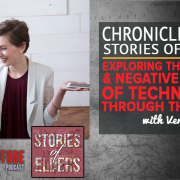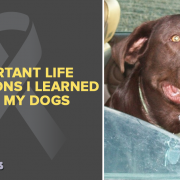Giving Your A-Game – What it Takes to be a High Performer
When it comes to labeling common sense and things that happen in an everyday working environment, the Organizational Leadership (OLS) department at Purdue is my standard.
During my studies, I remember thinking “that makes sense” to so many concepts that we learned about. From the importance of the transition period in organizational change, to mentorship, to even something as simple as communication. There was a name for everything.
Since then, I’ve run across a number of topics that have blown me away. I find it amazing that something which originally seemed relatively vague and difficult to comprehend can be simply explained by a label and a quick explanation.
It love it whenever something just clicks into place.
Recently, as I’ve been preparing to be better version of myself in 2019, I’ve been reading several books that I’ve been meaning to in the last few years.
One of those books is Brendon Burchard’s High Performance Habits. And I have to say I’ve gotten a ton of takeaways from this book. In fact, I wrote about one of those takeaways in the last post.
And in this post, I have one more to share with you. It’s all about realizing if you’re bringing your current project, your current role, heck – even your current relationships, your A-Game.
Bringing Your A-Game
Now, a lot of us are familiar with this phrase. If not, bringing one’s A-Game is about giving something you’re working on or participating in your complete effort – your full commitment. It’s a phrase that I’m guessing originally came from the sport world – but it’s used in all kinds of situations.
In life, we need to think as every day as game day. You simply can’t achieve your goals with B-effort.
That being the case, not everyone brings their full focus or a great attitude to what they’re working on. And, since most projects consist of more than one person, I think we need to be able to identify what level of commitment people are at when they’re working with us.
So let’s take a look at these various levels or identities.
Game Player Identities
There are 5 identities we can give people we know in some aspect of our life. Whether that’s at work, a sports league, a band, or even in an online multiplayer guild situation. When we find something which is important to us, we often want to know that the other people on our team are putting in the same amount of effort – if not more.
When I think of great players in sports, I can’t help but think of all the extra time they put into mastering their craft. And you better believe that the best players at any competitive online game have a team that they regularly train with.
If this is the case, why shouldn’t we hold those that we work with – including ourselves – under the same expectations?
So here ya go:
Dabblers
They have a passing interest in whatever it is that they’re “involved” with. I wouldn’t even call it being “involved”. They’re basically just taking whatever they’re doing for a test drive and not really committing to it. Unfortunately, a good part of their life is probably this way. They don’t take much, if anything, serious.
Novices
Like Dabblers, they have an interest in what they’re doing. But, unlike Dabblers, they actually see themselves eventually mastering whatever it is that they’re doing. They want to commit.
Problem is, they might not do that well with discouragement. And whenever they hit a wall without the proper support, they might just shelve whatever they’re starting on. Be this for simply a later date or when they feel more prepared to take on the task.
Amateurs
These folks have more than an interest – they have a passion – in whatever it is that they’re working on. This passion (also known as a Why?) keeps them more committed to long term goals, but they tend to need more external motivation to keep going.
When I think of this group, I like to remember that the first time I heard of Tiger Woods, he was playing as an amateur. Sure, he had what it took to get to the next level, but how many people did he play with that didn’t move on to the pros? Likewise when it comes to college level sports, there’s a lot of external pressure from coaches for individuals to perform.
Players (Professionals)
When people become pros, not only do they have to perform on another level, but they are also in charge of themselves and their actions quite a bit more. As long as these folks feel as if they are being fairly compensated for their efforts, then they’ll do fine.
However, they are also highly dependent on set rules and routines.
I think this is one reason why you see a lot of college recruited players fail at playing professional sports. They’re simply not prepared to make the transition. They don’t see the change of the game and their surroundings as fair. A good example of an athlete failing to make this transition is Ryan Leaf. (Even though he’s realized it since then.)
We don’t see this in just sports either. Many people outside of sports have issues with this transition, too.
For example, a lot of military personnel really struggle with life when they get out.
When they’re in their unit, they’re used to a certain way of doing things. They have a certain job that they’re supposed to do to make the machine work.
However, when they are discharged, they simply don’t have the support to make a successful transition to a civilian life.
When players don’t have things go their way, they find it hard to recover at times.
High Performers
Finally, we have the pinnacle of performers. The elite players – the GOATs (Greatest of all Time).
What is it about these folks that makes them so successful? Well, for one, they have greater all-around necessity, skill, and team spirit. In fact, not only do they have such a high degree of personal excellence and duty to their team (which makes them the de facto go-to player), but they have this uncanny ability to make everyone around them better.
When you think of these people in sports, we often think of people like Michael Jordan, Peyton Manning, Tom Brady, Drew Brees, and for you baseball fans – Babe Ruth. Who do you want to have the last chance to score?
In the working world, people like Elon Musk and Steve Jobs come to mind. Who would you want to run your company?
While these individuals might not have an well rounded life, they’re definitely well known for their work – their game. They don’t want to master just one of area of the game – but want to be known for their commitment in mastering the game entirely.
Action Steps
Pretty interesting, huh? Just like last post, my recommendation for your next step is to get this book of Brendon’s and read (listen to) it. In the last couple of years Gary V is credited for saying “Skills are cheap, passion is priceless.” In a nutshell, knowing how to be a high performer is knowing how to act on your personal mission.









